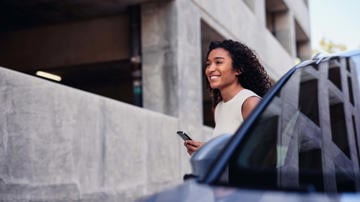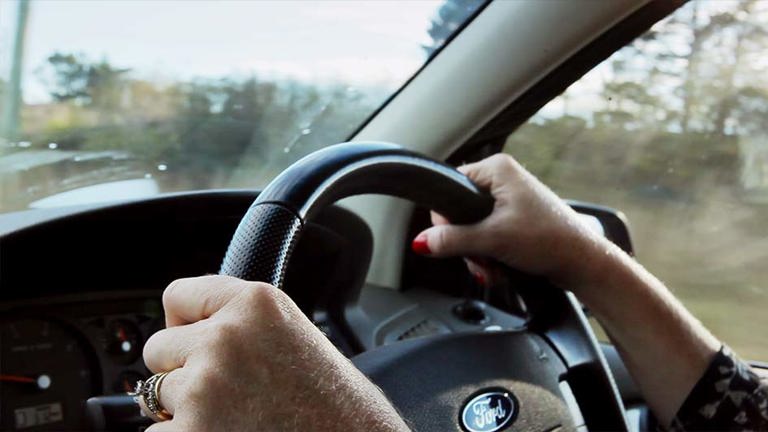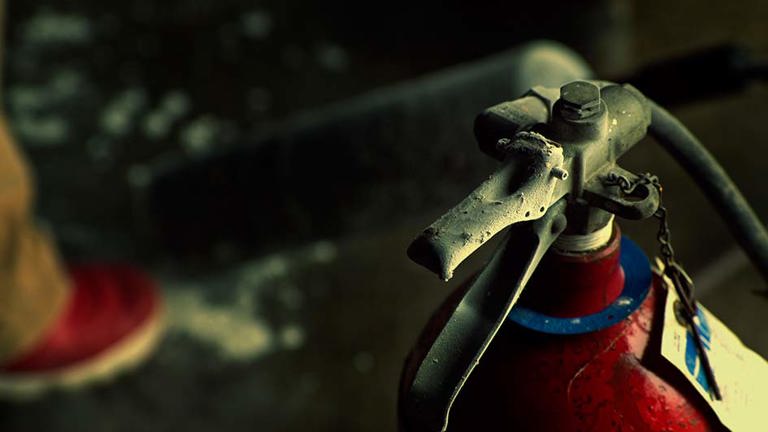Thinking about buying a used car? There are a few things you might like to consider before signing on the dotted line. Whether you purchase through a licensed motor dealer or a private seller, opting for a second hand car can be cheaper than buying new – but it can also come with some risks.
Before rushing in, it can help to think about whether the car you’re purchasing meets your needs, is safe and runs well. Fortunately, with around three million second hand cars typically available in Australia each year, there are plenty of vehicles to choose from.1
However, with such a volume of cars also comes the risk of scams. Keeping in mind potential risks, here’s a list of factors you might like to consider before buying a used car.
How much should you pay for a second hand car?
There are a number of factors that can affect the price of a second hand car, such as its condition and how many kilometres it has on its odometer.2
Websites such as Redbook3 or CarsGuide2 provide tools that could help with researching the average selling price for similar vehicles, so you can gauge whether the asking price is fair.
Richard Blackburn, National Motoring Editor for News Corp Australia, suggests looking at more than just the mileage of a used car.
“Sometimes low mileage is a trap.”
“Because if you’ve got a car that’s done highway miles, highway miles are actually a lot easier on the car than driving around the city. There’s less stress on all the mechanicals.
“You might see a car that’s 10 years old and it’s only got 40,000km on the clock and it’s only been used by one owner,” he adds. “(But) all the perishable bits on that car are still 10 years old.”
Of course, your financial position is another factor when it comes to purchasing a second hand car. Just as you probably wouldn’t walk into an auction for a home without a specific budget in mind, the same logic applies here.
Beyond the upfront price, it can help to factor in total costs4 such as registration, maintenance and repairs, car insurance, and any interest you may need to pay on a loan (if you require one). The make and model of the car could also impact how much you pay for insurance. Learn more about determining a car’s market value here.
Is it better to buy from a dealer or private seller?
While buying from a dealer can be more expensive than buying from a private seller, there may be some benefits, such as a warranty and cooling-off period.5 These can vary between states and territories.
In Victoria, for example, a licensed motor car trader should provide you with a statutory warranty if a car is less than 10 years old and has travelled less than 160,000km.6 This warranty must cover you for three months or 5,000km after purchase, whichever comes first.6 You’re also entitled to a three-business-day cooling-off period.7
Meanwhile, in the Northern Territory, you’ll be covered by a three-month or 5,000km statutory warranty if you purchase from a licensed dealer.8 You might like to check the regulations in your state or territory before you head to a second hand car dealer.
It’s also possible that a dealer could help you trade in your old car, for some extra cash.
“There’s a convenience of being able to drive your car in there and drive away with something else,” Blackburn says. “But be mindful that you’re going to be paying a premium if you buy a car at a dealership.”
If you’d prefer to buy through a private seller, beware of potential scammers. Blackburn says if the price is too good to be true or the seller is pressuring you to pay before you’ve seen or picked up the vehicle, think twice.
“If you’ve been looking at (comparable) cars and they’re all around the 10 grand mark and you find one that’s six, that’s an alarm bell.”
Questions to ask when buying a used car
Before you arrange to view a car, Blackburn suggests asking the seller questions such as:
- Where did you buy it from?
- Has it been regularly serviced?
- Is it still under warranty?
- What has it been used for?
- Has it been a fleet or rental vehicle?
- When were the tyres last replaced?
What to look for when buying a used car
When buying a used car, Blackburn notes the importance of a completed service schedule.
“If all the services have been completed on schedule then that’s a huge benefit, because things go wrong with modern cars when they’re neglected,” he explains.
“It’s an indication of what the owner’s attitude to their car is because if you don’t get it serviced, then you’re not really looking after it. So there’s probably other areas that it might’ve not been looked after.”
A thorough inspection of a used vehicle prior to purchase can help you identify problems and assess its value more accurately.4 The New South Wales Government recommends having a licensed mechanic inspect any vehicle you’re thinking of purchasing, and provides a helpful vehicle inspections checklist in case you’d prefer to do the inspection yourself.9
How to check a car’s history
Another helpful step prior to buying a used car could be a check of its history, to make sure it doesn’t have a shady past. Fee-based online services such as the government’s Personal Property Securities Register can help you check whether the vehicle you want to buy is free from debt, and that it hasn’t previously been stolen or written off.10
To run a search, you’ll generally need the car’s chassis number or vehicle identification number (VIN), as well as a credit or debit card.11
Before purchasing a second hand car, it might also be a good idea to check that the person selling the vehicle has the right to transfer the vehicle. The Victorian Government suggests checking the following:12
- The seller’s photo identification
- The vehicle certificate of registration/registration renewal
- That the VIN or chassis number (stamped on the physical vehicle) matches the certificate of registration, registration renewal or registration check details12
Is the paperwork in order?
So, the vehicle’s mechanically sound, has a clean history and is fairly priced. The last step involves the paperwork.
If you’re purchasing from a private seller, make sure you’re given proof of purchase. According to the NSW Government, documents from the seller should include either of the following:13
- ‘Part B Registration transfer details’ on the back of the physical (paper) Certificate of Registration
- A receipt or invoice with no alterations, which includes the:
- Vehicle’s details (plate number, VIN/chassis number, engine number, colour, make and model)
- Date and time of sale
- Name, address and signature of both the buyer and the seller13
If you’re using finance to pay for the car, the NSW Government suggests reading any contract or finance agreement carefully.4 In addition to finance from a used car dealer, you may also be able to get a loan through banks, credit unions and finance companies, so it could help to shop around and check out rates.14
Regardless of where you buy your vehicle, car insurance can help keep you covered from the moment you drive away. If you’re the proud new owner of a second hand car, you might like to consider starting an online quote with Youi.
1 Source: CarsGuide – Australian car market: Car sales, statistics and figures, 2022
2 Source: CarsGuide – Pricing and Specs
3 Source: Redbook – Research & Value Cars
4 Source: NSW Government – Buying a used vehicle
5 Source: Moneysmart – Buying and running a car
6 Source: Consumer Affairs Victoria – Warranties on used cars
7 Source: Consumer Affairs Victoria – Used car cooling-off period
8 Source: NT Government – Buying a new or used vehicle
9 Source: NSW Government – Vehicle inspections checklist
10 Source: Personal Property Securities Register – Search the PPSR
11 Source: Personal Property Securities Register – Do a used car or vehicle search
12 Source: Vic Government – Buy and transfer a registered vehicle
13 Source: NSW Government – Buying a vehicle
14 Source: NSW Government – Where to buy a vehicle




